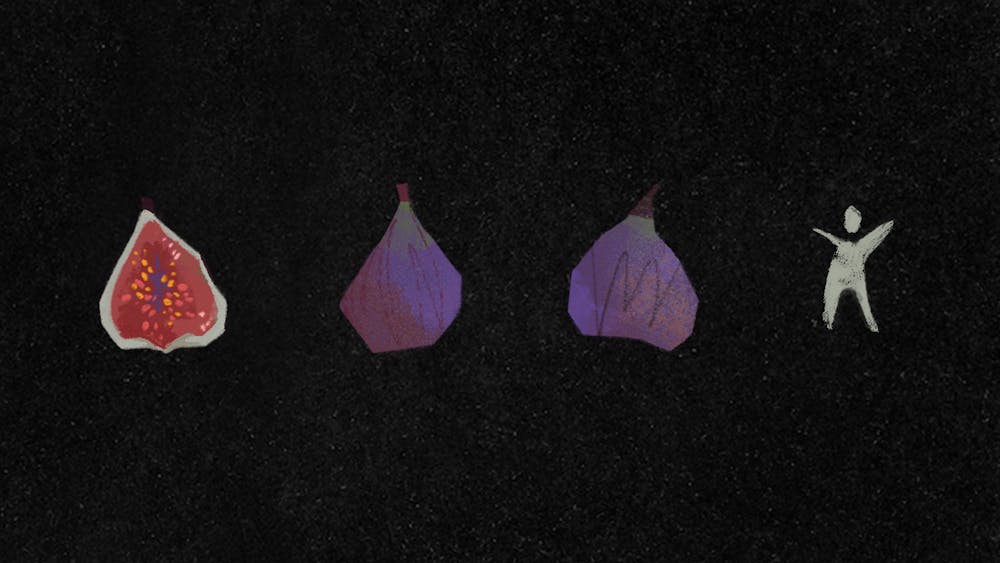As a kid, I wanted to be everything. My mom loves to tell the story of my kindergarten open house, where every child had drawn their dream job and placed it on their desk. Alongside all the abstract renditions of doctors, rock stars, and astronauts, I had simply drawn a question mark, captioned beneath with the words: “I don’t know.” After all, I was a kid who couldn’t even settle on a Halloween costume. (That year, I believe I was a “Friendly Ghost Superhero,” which was an improvement from “Rockstar Flower Fairy.”) When adults asked me what I wanted to be, I would pretentiously launch into a song where I listed every career I knew.
Thirteen years later, I arrived at college just as much of a question mark. Before I left home, my dad warned me: “The hardest part of college is the freedom.” By that, he meant college was the respite from parents’ watchful eyes, allowing for nearly unhampered access to your friends and drugs and all sorts of trouble that result when you mix the two. But there’s more freedom at college than simply a nonexistent curfew. It’s also the freedom to be.
Suddenly, everything was in my hands: what classes I took, how I spent my time, and most importantly, how I defined the values by which I chose to live my life. In high school, my choices were limited, but here, the opportunities seemed endless. Each day, I would become a new person, trying on a new identity. My friends would joke that they weren’t exactly sure what I was studying because my answer would change each day. I had a loose idea of wanting to go into academia—by which I figured if I was good at school, why not make it my job? I dabbled in everything I could—I coded, I philosophized, I calculated, I wrote—but I could not choose. I could not define my paradigms. To choose one thing was to give up another, to be an artist was to kill the scientist, it seemed. So instead, I was racing up the branches of my fig tree, trying to stuff myself full.
When you can’t choose for yourself, your instinct is to let others choose for you. It was in that moment of vulnerability that I was swept up by what I (affectionately) call the Church of Computer Scientology. I decided to take computer science classes if only because everyone around me was taking them too—and if I didn’t know what to do, it seemed only natural to trust the majority rule. But it wasn’t even a few months into my endeavor that I realized a scary fact—that in actuality, I could hardly rely on the people around me for advice. After all, everyone around me was on their own journey too, just as confused and with their own assumptions and standards in tow.
For some of the people I met during New Student Orientation, success was all about making money. There were those that cared about power or prestige. For some, success meant stability. In certain circles, success was defined as making an impact on the communities around them—though there were various different ideas on how that could be achieved. No one was right, and no one was wrong. They just all had their own terms with which to define their life, their own choices to contend with after weighing the values in their hands.
I was stuck in the middle of all these ricocheting definitions; each conversation or piece of advice found itself conflicting with the former. I had the freedom to pick the definition I wanted and determine exactly what I wanted to get out of college. Now, it was a question of whether I wanted to define my path for myself or attempt to resign myself of responsibility and follow everyone around me—either one was my choice.
Spoiler alert, it wasn’t until four semesters into college that I walked out of my computer science classes (much to the chagrin of Rajiv) and decided to give my all to study English and political science. There were a multitude of reasons that went into my choice—a culmination of advice from other people (one of the best words of wisdom I ever got was “Don’t sacrifice your Plan A for Plan B”), work and internship experiences, lunches with my TAs, and plenty of hours running down the Schuylkill ruminating. But ultimately, it was an individual choice, one defined by my still–developing framework of self. One thing I am grateful for is that I didn’t rush into my decisions. I was on my own timeline, and after plenty of experimentation and fuckups, I eventually found myself right where I belonged.
I have had an English professor who studied theoretical math at Princeton before getting their Ph.D. in poetics. One of my best friends came to Penn to study philosophy and now is the happiest I’ve seen him taking a software job. No path is linear, but every path is littered with choices—not just for your major. Really, that’s just the warm–up round, followed by the questions of your career, your lifestyle, the way you spend your time. Choosing the terms by which to live your life will often be one of the most difficult equations you will have to solve, the most difficult argument you will have to define. Each choice you make gives you either the confidence or lessons to make the next one even more informed.
One of the greatest myths is the expectation that you will come into Penn knowing who you want to be—when in reality, that’s something you will be figuring out not just over the course of these four years, but for the rest of your life.

